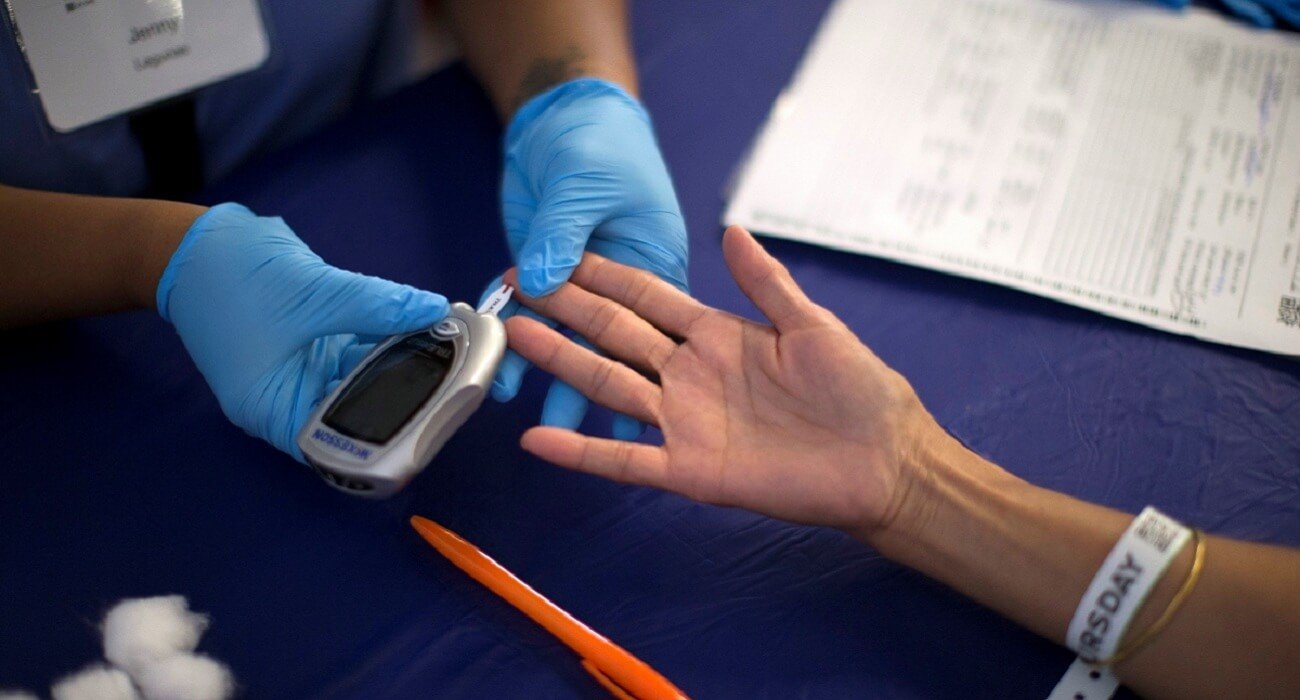Sciwind Biosciences Reports Positive Phase 3 Results for Ecnoglutide in Chinese Type 2 Diabetes Trial
03 January 2024 | Wednesday | News

Image Source : Public Domain
- Study participants receiving 0.6 and 1.2 mg ecnoglutide once weekly for 24 weeks achieved HbA1c reductions of 1.96 and 2.43% from baseline, respectively, compared to 0.87 % for placebo
- In the 1.2 mg ecnoglutide cohort, 76.1% of participants achieved HbA1c ≤ 6.5% and 35.2% achieved HbA1c < 5.7% at the end of the 24-week treatment
- Ecnoglutide was safe and well tolerated with gastrointestinal side effects as the most commonly reported adverse events
The Phase 3 trial (NCT05680155) is a randomized, double-blind, placebo-controlled study that enrolled 211 participants at 33 sites in China. Eligible subjects had T2DM that was inadequately controlled by diet and exercise. Participants were randomized to receive ecnoglutide (0.6 mg or 1.2 mg) or placebo as once weekly injections for 24 weeks, including a dose escalation period. Analysis was conducted at week 24 to allow comparison of ecnoglutide with placebo. All participants were then eligible to receive open label ecnoglutide at target doses of 0.6 or 1.2 mg for a total treatment duration of 52 weeks. Changes in mean HbA1c, body weight and BMI, as well as safety and tolerability were evaluated. At baseline, participants had a mean HbA1c of 8.5% and mean body weight of 73 kilograms.
After 24 weeks of treatment, participants receiving ecnoglutide achieved statistically significant reductions in HbA1c. The majority of the participants receiving ecnoglutide achieved HbA1c of less than 7% (the American Diabetes Association's recommended target for people with diabetes) and a significant proportion achieved HbA1c of less than 5.7%. There were also significant body weight decreases for participants receiving ecnoglutide. Key topline efficacy results of the study are summarized in the table below.
Summary of Efficacy Results
|
Week 24 |
Placebo (N=71) |
0.6 mg ecnoglutide (N=69) |
1.2 mg ecnoglutide (N=71) |
|
HbA1c change from baseline |
-0.87 % |
-1.96% (P=0.0003) |
-2.43% (P<0.0001) |
|
Percent of participants achieving HbA1c < 7% |
21.1 % |
68.1 % |
80.3 % |
|
Percent of participants achieving HbA1c ≤ 6.5% |
12.7 % |
52.2 % |
76.1 % |
|
Percent of participants achieving HbA1c < 5.7% |
0 % |
10.1 % |
35.2 % |
|
Percent body weight change from baseline |
-2.02 % |
-4.51% (P=0.0002) |
-4.74% (P<0.0001) |
Overall safety and tolerability of ecnoglutide in this study was consistent with the established profile of GLP-1 receptor agonists. The most frequently reported adverse events included decreased appetite, diarrhea, and nausea, and majority of the AEs were mild to moderate in severity. A total of three subjects, one (1.4%) from each cohort, discontinued the study due to adverse events.
"We are very pleased to see the positive results from the first Phase 3 clinical trial of ecnoglutide in China. The HbA1c reductions observed after 24 weeks of treatment are very promising and are comparable to the treatment effects seen with dual GLP-1/GIP analogs such as tirzepatide," said Hai Pan, CEO of Sciwind Biosciences. "The strong efficacy we are seeing with ecnoglutide in clinical studies is consistent with its cAMP signaling biased mechanism of action."
In addition to this Phase 3 trial in T2DM patients, which is expected to complete in the first half of 2024, ecnoglutide is also being evaluated in two additional Phase 3 trials. These fully enrolled trials are investigating ecnoglutide versus dulaglutide in T2DM (NCT05680129) and ecnoglutide versus placebo in participants with overweight or obesity (NCT05813795). Results from both pivotal studies are expected in the second half of 2024.
Most Read
- How Does GLP-1 Work?
- Innovations In Magnetic Resonance Imaging Introduced By United Imaging
- Management of Relapsed/Refractory Multiple Myeloma
- 2025 Drug Approvals, Decoded: What Every Biopharma Leader Needs to Know
- BioPharma Manufacturing Resilience: Lessons From Capacity Expansion and Supply Chain Resets from 2025
- APAC Biopharma Review 2025: Innovation, Investment, and Influence on the Global Stage
- Top 25 Biotech Innovations Redefining Health And Planet In 2025
- How Health Systems Are Reshaping Drug Adoption, Partner Models, and Market Access in 2026
- The New AI Gold Rush: Western Pharma’s Billion-Dollar Bet on Chinese Biotech
- Single-Use Systems Are Rewiring Biopharma Manufacturing
- The State of Biotech and Life Science Jobs in Asia Pacific – 2025
- Asia-Pacific Leads the Charge: Latest Global BioSupplier Technologies of 2025
- Invisible Threats, Visible Risks: How the Nitrosamine Crisis Reshaped Asia’s Pharmaceutical Quality Landscape
Bio Jobs
- Sanofi Turns The Page As Belén Garijo Steps In And Paul Hudson Steps Out
- Global Survey Reveals Nearly 40% of Employees Facing Fertility Challenges Consider Leaving Their Jobs
- BioMed X and AbbVie Begin Global Search for Bold Neuroscience Talent To Decode the Biology of Anhedonia
- Thermo Fisher Expands Bengaluru R&D Centre to Advance Antibody Innovation and Strengthen India’s Life Sciences Ecosystem
- Accord Plasma (Intas Group) Acquires Prothya Biosolutions to Expand Global Plasma Capabilities
- ACG Announces $200 Million Investment to Establish First U.S. Capsule Manufacturing Facility in Atlanta
- AstraZeneca Invests $4.5 Billion to Build Advanced Manufacturing Facility in Virginia, Expanding U.S. Medicine Production
News











